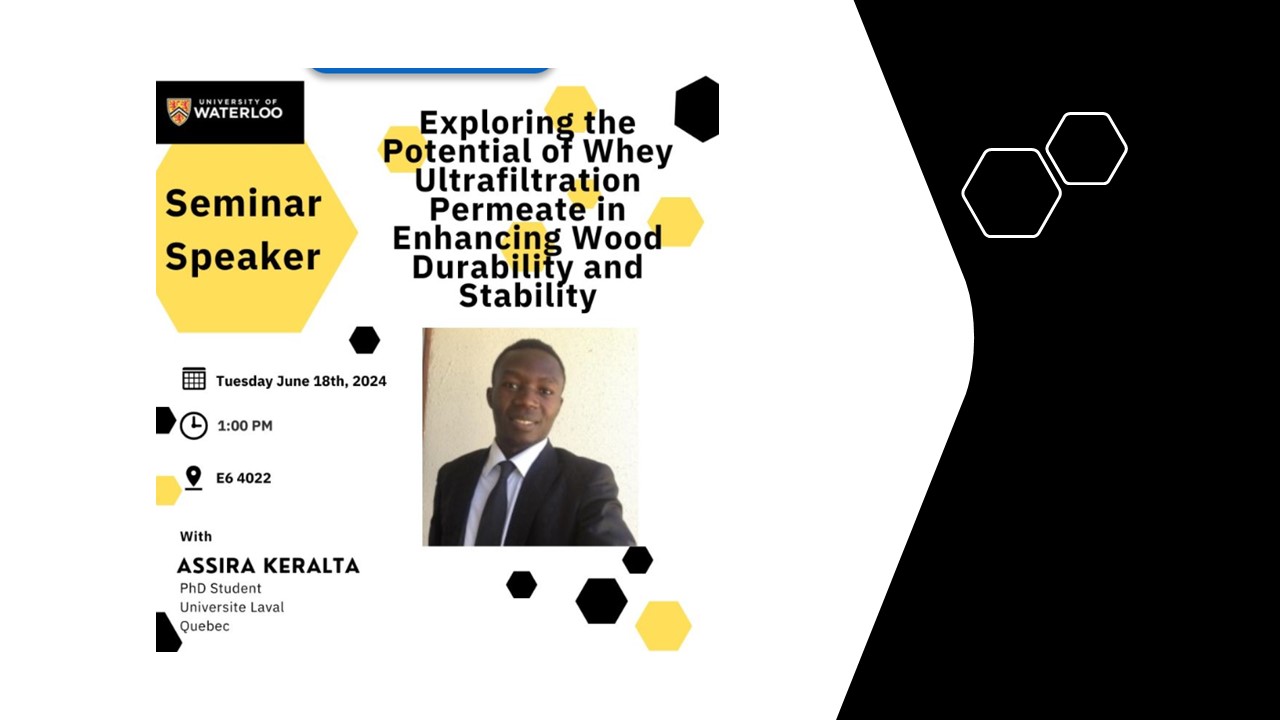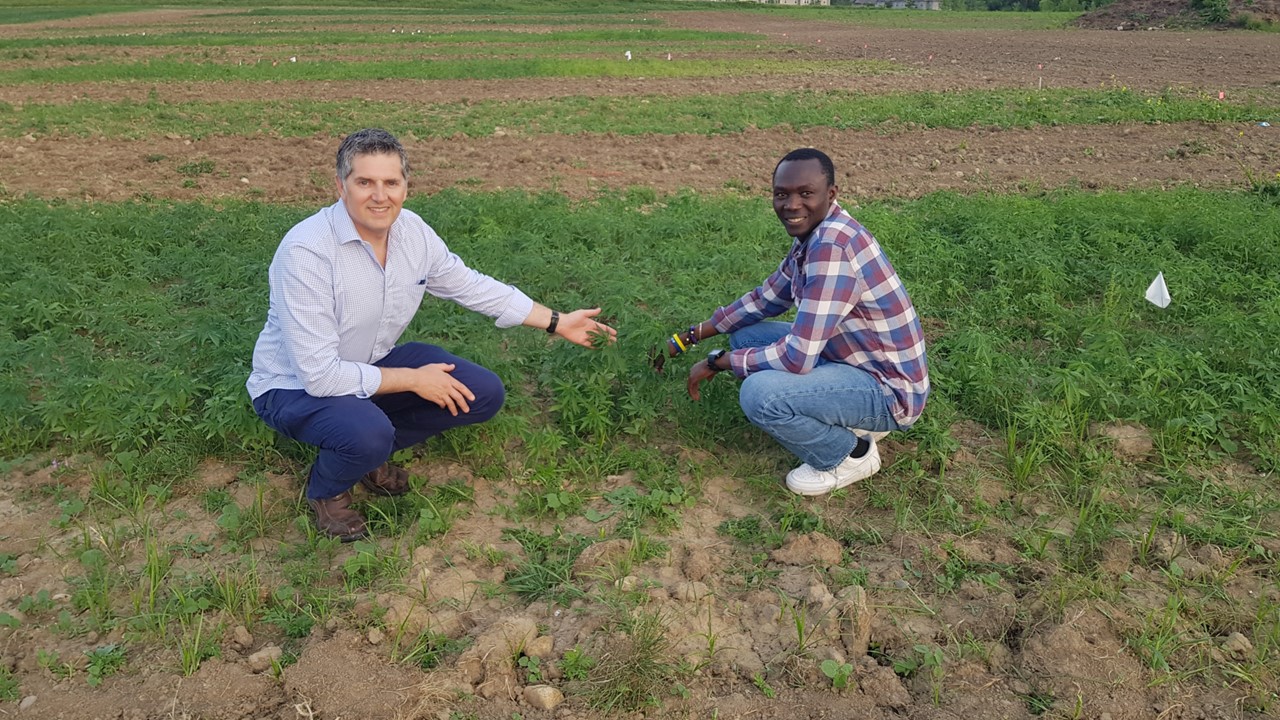Assira Keralta’s seminar at the Department of Chemical Engineering at the University of Waterloo
Assira Keralta, a PhD student in wood engineering and bio-based materials under the supervision of Véronic Landry, had the opportunity to visit the laboratory of Professor Leonardo Simon and to lead a seminar on June 18, 2024. This seminar was aimed at graduate students and professors from the Department of Chemical Engineering at the University of Waterloo.
During his seminar, titled « Exploring the Potential of Whey Ultrafiltration Permeate in Enhancing the Durability and Stability of Wood », Assira presented his innovative research on the use of whey ultrafiltration permeate. He explained how this by-product of the dairy industry could improve the durability and stability of wood materials, offering interesting prospects for the development of more resistant and ecological bio-based materials.
Many thanks to Professor Leonardo Simon and the Department of Chemical Engineering at the University of Waterloo for their warm welcome and organization of this seminar. The active participation of graduate students and professors greatly contributed to the richness of the discussions that followed the presentation.
Congratulations to Assira on this remarkable performance! We wish him much success in pursuing his research and in his academic and professional journey.

Abstract of the seminar:
Wood is a hygroscopic and hygro-responsive material, meaning it can absorb and desorb moisture based on its surrounding environment. This absorption/desorption phenomenon is accompanied by dimensional changes. Additionally, the presence of moisture in wood not only provides optimal conditions for microorganism growth but also facilitates the diffusion of fungal enzymes that initiate wood decay. Reducing wood moisture uptake enhances both dimensional stability and resistance to microorganisms. Various technologies have been developed with this goal in mind, including wood polyesterification. This process involves impregnating wood with polyols and polyfunctional acids, followed by an in-situ reaction to occupy the primary sites of moisture absorption. Whey ultrafiltration (UF) permeate, a byproduct of the cheese industry, contains up to 88% lactose (based on dry mass). Lactose, a disaccharide with eight hydroxyl groups, acts as a polyol. This project investigates the potential of using lactose from whey UF permeate as a polyol to substitute other polyols in wood modification.
Our findings demonstrate that lactose from whey UF permeate can react with citric, malic, and succinic acids when heated to 160 °C. While undergoing esterification, caramelization also occurs due to heat and acidic conditions, and Maillard reaction takes place as a secondary reaction due to the presence of non-protein nitrogen in the whey UF permeate. Polyesterification of trembling aspen wood using a combination of whey UF permeate, and malic acid significantly reduces its moisture content compared to untreated trembling aspen wood. This treatment also enhances its dimensional stability by up to 60% and significantly alters its thermal stability. This ongoing project highlights the potential of using whey UF permeate in wood modification, thereby adding value to a byproduct whose production is steadily increasing in North America, posing a significant management challenge for the cheese industry.

From left to right: Leonardo Simon and Assira Keralta

